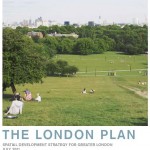Site search:
-
What’s new?
Energy for London Tags
Brent Buildings Camden Carbon Emissions CHP Cities Climate Adaptation Community Heating Community Initiatives Croydon Data DECC Decentralised Energy Distribution ECO Energy Costs Energy Efficiency Enfield FIT Fuel Poverty Funding Green Deal Hackney Haringey Housing Islington Lambeth Library Local Authorities Mayor Newham Ofgem Olympics Photovoltaics Planning RE:FIT RE:NEW Renewable Energy Retrofit Southwark Tower Hamlets Transport Waltham Forest Waste WestminsterEnergy Archives:
- February 2021 (1)
- January 2021 (15)
- December 2020 (15)
- November 2020 (9)
- October 2020 (3)
- August 2020 (5)
- July 2020 (3)
- June 2020 (4)
- April 2020 (10)
- March 2020 (5)
- February 2020 (2)
- January 2020 (3)
- October 2019 (1)
- September 2019 (4)
- August 2019 (2)
- July 2019 (1)
- August 2018 (1)
- November 2016 (8)
- October 2016 (8)
- September 2016 (2)
- August 2016 (8)
- July 2016 (14)
- April 2016 (12)
- March 2016 (16)
- February 2016 (8)
- January 2016 (4)
- December 2015 (1)
- November 2015 (1)
- October 2015 (16)
- September 2015 (3)
- June 2015 (1)
- May 2015 (1)
- April 2015 (1)
- March 2015 (1)
- February 2015 (1)
- January 2015 (1)
- December 2014 (18)
- November 2014 (4)
- August 2014 (8)
- July 2014 (7)
- June 2014 (25)
- May 2014 (8)
- April 2014 (4)
- March 2014 (12)
- February 2014 (7)
- January 2014 (13)
- December 2013 (11)
- November 2013 (15)
- October 2013 (15)
- September 2013 (18)
- August 2013 (5)
- July 2013 (20)
- June 2013 (33)
- May 2013 (8)
- April 2013 (16)
- March 2013 (25)
- February 2013 (14)
- January 2013 (20)
- December 2012 (23)
- November 2012 (23)
- October 2012 (25)
- September 2012 (14)
- July 2012 (12)
- June 2012 (43)
- May 2012 (20)
- April 2012 (8)
- March 2012 (40)
- February 2012 (39)
- January 2012 (40)
- December 2011 (22)
- November 2011 (40)
- October 2011 (33)
- September 2011 (48)
- August 2011 (40)
- July 2011 (58)
- June 2011 (41)
- May 2011 (80)
- April 2011 (38)
- March 2011 (33)
- February 2011 (25)
- January 2011 (24)
- December 2010 (3)
- November 2010 (7)
- October 2010 (6)
- September 2010 (7)
- August 2010 (1)
- July 2010 (2)
- June 2010 (4)
- May 2010 (1)
- March 2010 (3)
- February 2010 (3)
- December 2009 (5)
- November 2009 (2)
- October 2009 (3)
- July 2009 (3)
- June 2009 (1)
- April 2009 (1)
- March 2009 (1)
- February 2009 (1)
- January 2009 (1)
- December 2008 (2)
- October 2008 (1)
- September 2008 (1)
- July 2008 (1)
- March 2008 (2)
- January 2008 (2)
- October 2007 (1)
- September 2007 (3)
- July 2007 (1)
- March 2007 (1)
- February 2007 (3)
- November 2006 (3)
- August 2006 (1)
- February 2006 (1)
- May 2005 (1)
- February 2004 (1)
Library
London Plan Energy & Climate Policies
 26 July 2011: After close to two years of consultation, London’s new spatial strategy has been published by the Mayor. The London Plan forms part of the development plan for Greater London and London boroughs’ local plans need to be in general conformity with the London Plan. Its policies guide decisions on planning applications for new developments and strategies by councils and the Mayor. Chapter 5 of the strategy focuses on London’s response to climate change and building on previous versions of the London Plan (2004 and 2008), which achieved a significant impact on the carbon efficiency of new development, the new London Plan sets out a number of requirements. These include:
26 July 2011: After close to two years of consultation, London’s new spatial strategy has been published by the Mayor. The London Plan forms part of the development plan for Greater London and London boroughs’ local plans need to be in general conformity with the London Plan. Its policies guide decisions on planning applications for new developments and strategies by councils and the Mayor. Chapter 5 of the strategy focuses on London’s response to climate change and building on previous versions of the London Plan (2004 and 2008), which achieved a significant impact on the carbon efficiency of new development, the new London Plan sets out a number of requirements. These include:
- CO2 savings of 25 per cent more than national building requirements at a minimum on all new developments
- As previously, all major development should provide detailed energy assessments on how these emission savings are to be made
- In contrast to the Government’s recent climb-down in its definition of ‘zero carbon’, London Plan Policy 5.2Da requires energy assessments to include separate details of unregulated emissions and proposals for how these emissions are to be reduced
- When preparing LDFs boroughs should identify opportunities for reducing CO2 emissions from the existing building stock, and also identify and establish decentralised energy network opportunities.
- With the aid of the London Heat Map, boroughs should develop energy master plans for specific decentralised energy opportunities.
Further policy requirements for decentralised energy systems, renewable and innovative energy technologies and the overheating and cooling of buildings are also set out in the Plan.
Posted in Decentralised Energy, Library, News
Tagged Decentralised Energy, London Plan, Mayor, Planning
Leave a comment
The 10 Pillars of Local Energy Security
 July 2011: A new paper from the Local Government Information Unit (LGIU) which, in the light of the Government’s recent announcements on electricity market reform, proposes that the main responsibility for leaders in councils now is local energy security. Communities, businesses and the council itself need energy to function and the supply should be reliable and sustainable. The right energy in the right place, now and in the future.
July 2011: A new paper from the Local Government Information Unit (LGIU) which, in the light of the Government’s recent announcements on electricity market reform, proposes that the main responsibility for leaders in councils now is local energy security. Communities, businesses and the council itself need energy to function and the supply should be reliable and sustainable. The right energy in the right place, now and in the future.
Posted in Library, News
Tagged Energy Saving Trust, Energy Security, Local Authorities
Leave a comment
Green Expectations: Lessons from the US green jobs market
 22 July 2011: Hanna Thomas of the East London Green Jobs Alliance is a co-author of this Institute of Public Policy Report (IPPR) report assessing the success of the ‘green jobs’ policy agenda in the US investigating a range of localised, bottom-up approaches to fostering the ‘green economy’. The report makes some useful comments in relation to the Government’s Green Deal programme, which “has been billed as having the potential to create 250,000 jobs, making it the largest single opportunity for job creation in UK energy and climate change policy. But the difficulties experienced in the US in creating jobs in this sector underline the challenge the Green Deal faces in realising this estimate and achieving wider policy success.”
22 July 2011: Hanna Thomas of the East London Green Jobs Alliance is a co-author of this Institute of Public Policy Report (IPPR) report assessing the success of the ‘green jobs’ policy agenda in the US investigating a range of localised, bottom-up approaches to fostering the ‘green economy’. The report makes some useful comments in relation to the Government’s Green Deal programme, which “has been billed as having the potential to create 250,000 jobs, making it the largest single opportunity for job creation in UK energy and climate change policy. But the difficulties experienced in the US in creating jobs in this sector underline the challenge the Green Deal faces in realising this estimate and achieving wider policy success.”
Climate Change and Social Media Project
July 2011: Local Government case study of Brent’s interesting Climate Change and Social Media Project – further information of which in an earlier news story.
A Simple Guide to the Renewable Heat Incentive
July 2011: Ofgem have just issued a leaflet setting out the key aspects of the Renewable Heat Incentive scheme for prospective participants. DECC have yet to announce the start of the Renewable Heat Premium Payment (RHPP) – a subsidy for a range of renewable heat technologies that can be used in homes – which will be used as a bridge until the full domestic-sector RHI kicks off in October 2012 alongside the Green Deal. This Ofgem brochure just mentions that “DECC will release further information about the RHPP shortly.”
Community projects impacted by the feed-in tariff review
July 2011: Friends of the Earth have provided a really interesting update on a number community energy projects using renewable energy technologies, whose viability has now been threatened as a result of the Government’s FIT review and its reduction in the tariff rates for >50kW photovoltaic projects.
Warm and healthy homes
July 2011: Local Government Association (LGA) submission to the Hills Review on Fuel Poverty – providing case studies of how councils are helping householders improve the energy efficiency of their homes. Includes contributions from Camden, Sutton and Croydon.
Renewable Energy Roadmap
July 2011: Alongside the publication of the White Paper on Tuesday [see story below], the Government also published a ‘Renewable Energy Roadmap‘ which “outlines a plan of action to accelerate renewable energy deployment – to meet the target of 15% of all energy by 2020 ” – now said to be a four-fold increase over current levels of renewable energy consumption.
Government has highlighted before the importance of local authorities in helping support the growth of renewable energy and has also recently changed legislation to ensure that local authorities can themselves play their part as renewable energy developers (see letter from Chris Huhne to all leaders and chief executives of local authorities) .
The 100 page Roadmap is, however, incredibly ‘lite’ on the contribution that local authorities can play, pointing only to the work funded by DECC to produce nine regional studies to help “identify and maximise opportunities for the deployment of renewable and low carbon energy technologies in their area.” The Roadmap goes on to state that “Local Authorities and communities will be able to use the results of these assessments to inform development of their local and neighbourhood development plans.” [page 24]
and that:
“While the focus of the project has been to present the results at sub-regional and sub-national scales, much of the original data can be interrogated down to Local Authority level. This original data is available to Local Authorities to undertake their own analysis.” [page 25]
DECC goes on to say that one of their priority actions will be to:
” …Reform the local planning system in England to ensure that it supports economic growth, give communities a greater say and stake in development, and help local authorities and communities to identify opportunities for the deployment of renewables using analysis from regional studies.” [page 30]
Seven of the nine assessments for England are now available through the DECC web site – London’s renewable energy assessment study is awaiting publication, anticipated to be sometime later this year.
Posted in Library, News, Renewable Energy
Tagged DECC, Local Authorities, Planning, Renewable Energy
Leave a comment
“…the biggest transformation of the market since privatisation.”
12 July 2011: Amongst the myriad new market instruments proposed in today’s Planning Our Electric Future White Paper, most of which are targeted at larger scale generation plant, the Government does briefly turn to look at the opportunities from smaller decentralised (termed as distributed generation in the paper) generating plant. The White Paper states: “Used in the right ways and as part of an evidence-based approach to energy planning, distributed energy technologies have the potential to complement both each other and the wider centralised energy system. They can also be an important tool in engaging consumers in their energy use. In particular, we recognise that integrated, local-level distributed energy systems could be an important step towards a more coordinated approach that includes, for example, transport and waste.”
However, no specific proposals are put forward by Government to support smaller decentralised energy projects – the White Paper just goes on to say that “our proposals have been developed with consideration of all scales of generation. These include the following… both types of Feed-in Tariff (FiT) and the Capacity Mechanism will encourage distributed generation in different ways .”
The ‘Feed-in Tariff with Contract for Difference (FiT CfD)’ – as it’s more fully called – will offer long term power price contracts to generators, reducing the risks associated with market price volatility, and hence help stimulate investment in the development of new generation plant.
The Capacity Mechanism will effectively pay generators to be on standby to help ensure that there is a sufficient margin of generation capacity on the electricity system, hence providing additional stability and guarding against power blackouts. These capacity payments are being introduced as a result of concerns over the numbers of power stations being closed down over the next decade (around one third of UK generation plant – mostly aging coal and nuclear) and also due to the increased levels of intermittent generation being added to the network, predominantly wind power.
It is not clear as yet how the particular challenges faced by smaller decentralised energy schemes will be taken into account as all of the work done in the White Paper relates to larger centralised generating schemes. Though references are made in the White Paper to community-based schemes coming forward, no guidance has been provided on how Government will support such activities. The Government has left the resolution of these issues to be worked out by a new ‘Government Industry Contact Group on Distributed Energy’ to be convened later this year. The group is to “be chaired by Ministers, and will involve a small number of key industry representatives ” which seems to suggest that local authority representatives, key players in supporting the growth of such systems, will not be included on the group…
Posted in Decentralised Energy, Library, News
Tagged DECC, Decentralised Energy, Library
Leave a comment
State of the Environment report for London
July 2011: London’s Environment Revealed is the first joint report on the State of the Environment in London, produced by the Greater London Authority, Environment Agency, Natural England and the Forestry Commission. The report looks at the state of London’s environment today, highlights the improvements that have been made, and the challenges the city faces. The report also features many projects and schemes at a local level that have improved the environment in London in recent years. Data presented for the report is also available as an Excel spreadsheet. GLA press release is available here.
‘Ten Steps to Save the Cities’
7 July 2011: The New Economics Foundation have set out today ten ‘tried-and-tested solutions’ from their work on local economic development to propose a new way forward for UK cities. Included amongst these is to “Invest in local energy. At present only 0.01 per cent of electricity in England is generated by local authority-owned renewables, despite the scope that exists to install projects on their land and buildings. In Germany the equivalent figure is 100 times higher.” Two examples are cited – both in London:
“The London Borough of Haringey has launched their own Haringey 40:20 organisation, involving business and civil society, because of the scale of the challenge – one in four homes will need to improve energy efficiency, 20,000 will need some kind of renewable generator capacity fitted, and 30,000 local homes will need to be linked up with local energy networks.
But if cities generate energy then local people are employed. If local authorities have a stake in the financing of this, then the surplus can be re-invested into the less well-off areas of a city to increase sustainability. If community organisations are able to invest in energy generation, like the pioneering Peckham Power company in London, then there will be an ongoing benefit to local people which has huge implications for local economies.”

